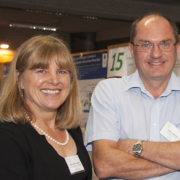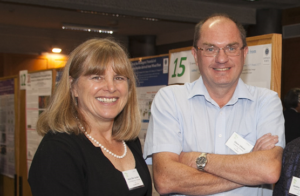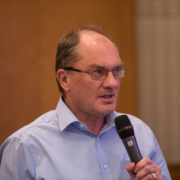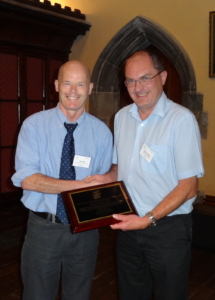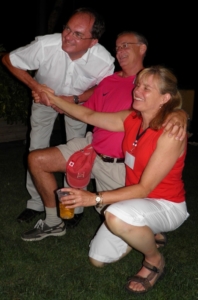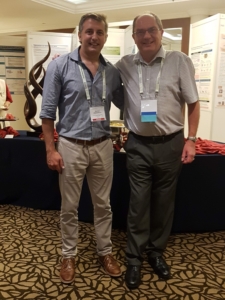ISAPP’s Guiding Principles for the Definitions of ‘Biotics’
By Mary Ellen Sanders, PhD, ISAPP Executive Science Officer
Articulating a definition for a scientific concept is a significant challenge. Inevitably, scientists have different perspectives on what falls inside and outside the bounds of a term. Prof. Glenn Gibson, ISAPP co-founder and longtime board member, recently published a paper that describes his path to coining the word ‘prebiotic’, with this observation: “One thing I have learned about definitions is that if you propose one, then be ready for it to be changed, dismissed or ignored!”
Members of the ISAPP board, however, have remained steadfast in their belief that such definitions are worth creating. They are the basis for shared understanding and coordinated progress across a scientific field.
Developing the consensus definition papers on probiotics, prebiotics, synbiotics, postbiotics and fermented foods was demanding on the part of all involved. The objective of the panels that met to discuss these definitions was clear – to provide common ground for consistent use of this growing body of terms for all stakeholders. Although some disagreement among the broader scientific community exists about some of the definitions, ISAPP’s approach relied on important, underlying principles:
- Don’t unnecessarily limit future innovation
- Don’t unnecessarily limit mechanisms of action
- Don’t unnecessarily limit scope (host, regulatory category, mechanism, site of action, etc.)
- Require a health benefit on a target host to be demonstrated – otherwise, what is the value of these biotic substances? (Of course, fermented foods were the exception in this criterion, because the value of consuming fermented foods even in the absence of an established health benefit is evident.)
- Limit to preparations that are administered, not substances produced by in situ activities
In my opinion, many published definitions, including previous ones for postbiotics (see supplementary table here), are untenable because they don’t recognize these principles. There may also be a tendency to rely on historical use of terms, rather than to describe what is justified by current scientific knowledge. A good example of this is provided by the first definition of probiotics, published in 1965. It was “substances secreted by one microorganism that stimulate another microorganism” (Lily and Stillwell, 1965), which is far from the current definition of “live microorganisms that, when administered in adequate amounts, confer a health benefit on the host (Hill et al. 2014).
If you’re looking for a concise summary of the five published ISAPP definitions, see here for our definitions infographic.
Additional reflections: I noted with a smile Glenn’s views on ISAPP, specifically on the appropriate pronunciation of the abbreviation ‘ISAPP’. “My only negative is that everyone involved in the organisation aside from 2 or 3 of us pronounce its acronym wrongly.” Most board members, including myself, have always pronounced this as ‘eye-sap’. Glenn opines, “The abbreviation is not eye-SAPP, it is ISAPP (with the ‘I’ – remarkably enough – being spoken as it is in the word ‘International’).” I wonder how he pronounces IBM?

